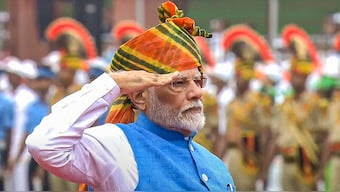Independence Day 2024 reflected a massive political swing when Congress leader Rahul Gandhi did the unthinkable by reaching out to attend the Red Fort celebrations. It marks the very first time in a decade that a leader of the opposition has made his way to the celebrations, marking the apparent change India is about to witness within its political ecosystem.
Shift in Power Opens Door for Strong Opposition
The post of the leader of opposition was lying vacant for the past 10 years since BJP enjoyed an overwhelming majority in Parliament. Then, it was the Lok Sabha Elections 2024 that changed this regime and reduced BJP’s majority, thus opening an opportunity for a strong opposition. Rahul Gandhi, elected as the leader of the opposition, represented the new era of politics that came with Independence Day celebrations.
Before the BJP came to power in 2014, the LoP designation was vested in BJP leader and former External Affairs Minister Sushma Swaraj during the time of the prime ministership of Dr. Manmohan Singh. The return of an opposition leader into the Red Fort underlines the shifting political tides and rebalancing of parliamentary power.
Rahul Gandhi Joins Red Fort Ceremony
On the same day, Prime Minister Narendra Modi hoisted the national flag at Red Fort; it was his eleventh consecutive Independence Day address and the first of his third term. Much emphasis in Modi’s speech has been on the works of the government and its vision for times to come back to the progress so far and the continuing reforms underway to transform India into a developed nation by 2047.
In a bid to show brotherhood and patriotism, Rahul Gandhi went on to the social media platform X to wish fellow Indians a very happy Independence Day. His message focused on celebrating freedom not as simply a word but as a basic element taken from the very foundation of India’s constitutional and democratic values. He stressed that empowered expression and the hope of fulfilling dreams form the very core of progress in the journey of this nation.
This year, Independence Day did not only remain as the completion of 78 years of freedom which India had earned but it also marked a re-energized political scenario with a redefined role of opposition in the democracy of the nation.











